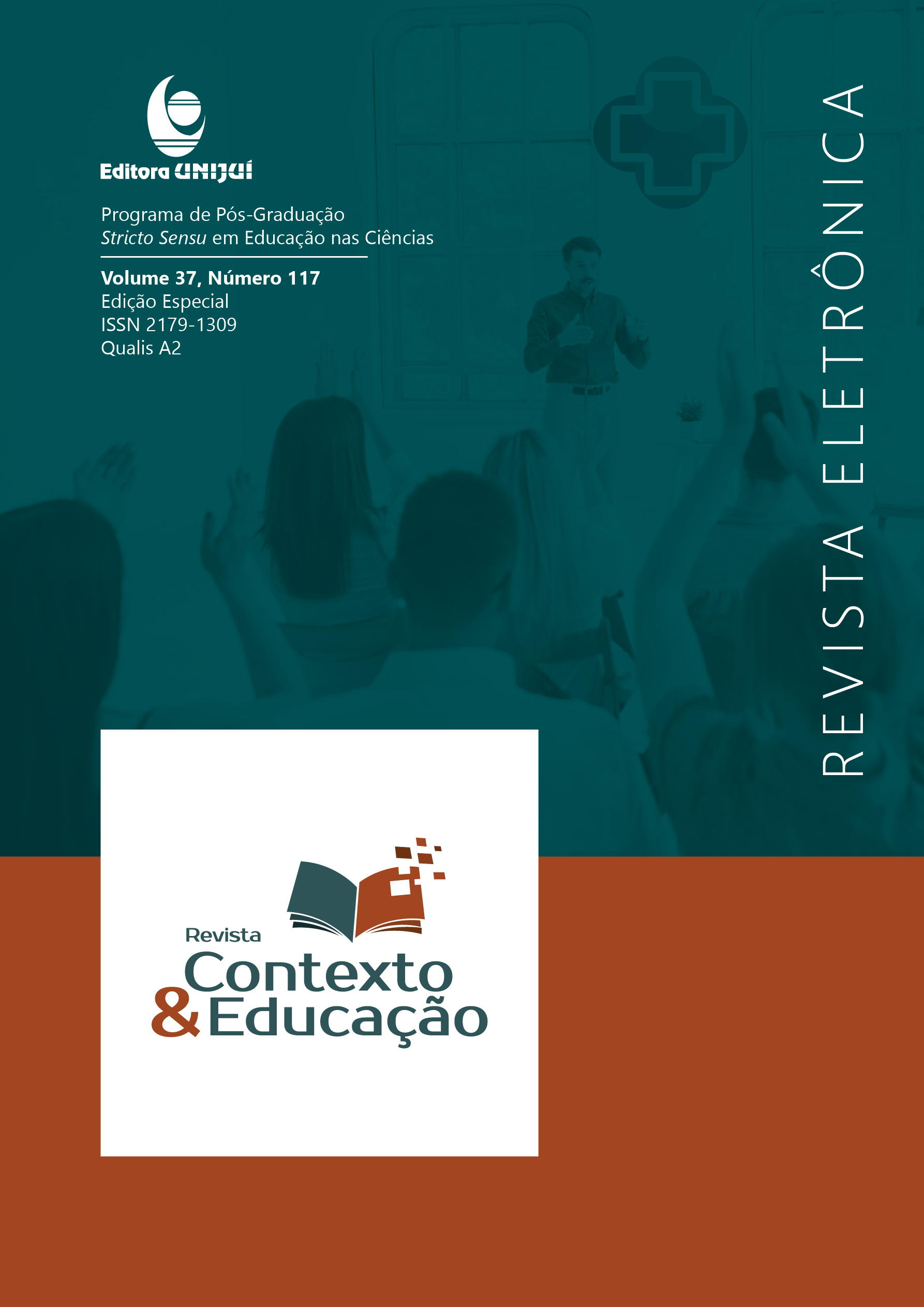PAULO FREIRE AND THE DIALOGUE:
DOI:
https://doi.org/10.21527/2179-1309.2022.117.12882Keywords:
Dialogue. Education. Health. Humanization.Abstract
This study tries to understand the human relations in the reception and care processes in school education and public health to analyze the various interfaces of the human person, considering him to be a multidimensional being. Relationships are established by and for humans, and this aspect needs to be taken into account in a contextualized way, favoring perspectives of impulse and orientation for the construction of humanizing practices. The methodological approach consists of a qualitative study and uses content analysis on two works by Paulo Freire (Pedagogia do oprimido e Educação e mudança), constituting a corpus of analysis organized according to the a priori categories: school education and health public. The study focuses on the gains achieved by a group of balsenses who, through a project carried out in a municipal school in the rural area, with a view to preserving the environment in partnership with health professionals, brought pedagogical guidelines together with awareness activities together to health care about the difficulties of dealing with the waste produced, highlighting dialogue as a method and strategy for better living and healthier life. Outlines results of a reflection that, based on humanizing pedagogy, gives dignity to the subjects and favors the construction of principles and the cultivation of values that trigger other understandings that promote movements to overcome dehumanizing models.
Downloads
Published
How to Cite
Issue
Section
License
Copyright (c) 2022 Revista Contexto & Educação

This work is licensed under a Creative Commons Attribution 4.0 International License.
By publishing in Revista Contexto & Educação, authors agree to the following terms:
All works are published under the Creative Commons Attribution 4.0 International License (CC BY 4.0), which allows:
Sharing — to copy and redistribute the material in any medium or format;
Adaptation — to remix, transform, and build upon the material for any purpose, even commercially.
These permissions are irrevocable, provided that the following terms are respected:
Attribution — authors must be properly credited, a link to the license must be provided, and any changes made must be indicated.
No additional restrictions — no legal or technological measures may be applied that legally restrict others from doing anything the license permits.
Notices:
The license does not apply to elements that are in the public domain or covered by legal exceptions.
The license does not grant all necessary rights for specific uses (e.g., image rights, privacy, or moral rights).
The journal is not responsible for the opinions expressed in the articles, which are the sole responsibility of the authors. The Editor, with the support of the Editorial Board, reserves the right to suggest or request modifications when necessary.
Only original scientific articles presenting research results of interest that have not been previously published or simultaneously submitted to another journal with the same purpose will be accepted.
Mentions of trademarks or specific products are intended solely for identification purposes and do not imply any promotional relationship by the authors or the journal.
License Agreement (for articles published from October 2025): Authors retain the copyright to their article and grant Revista Contexto & Educação the right of first publication.


